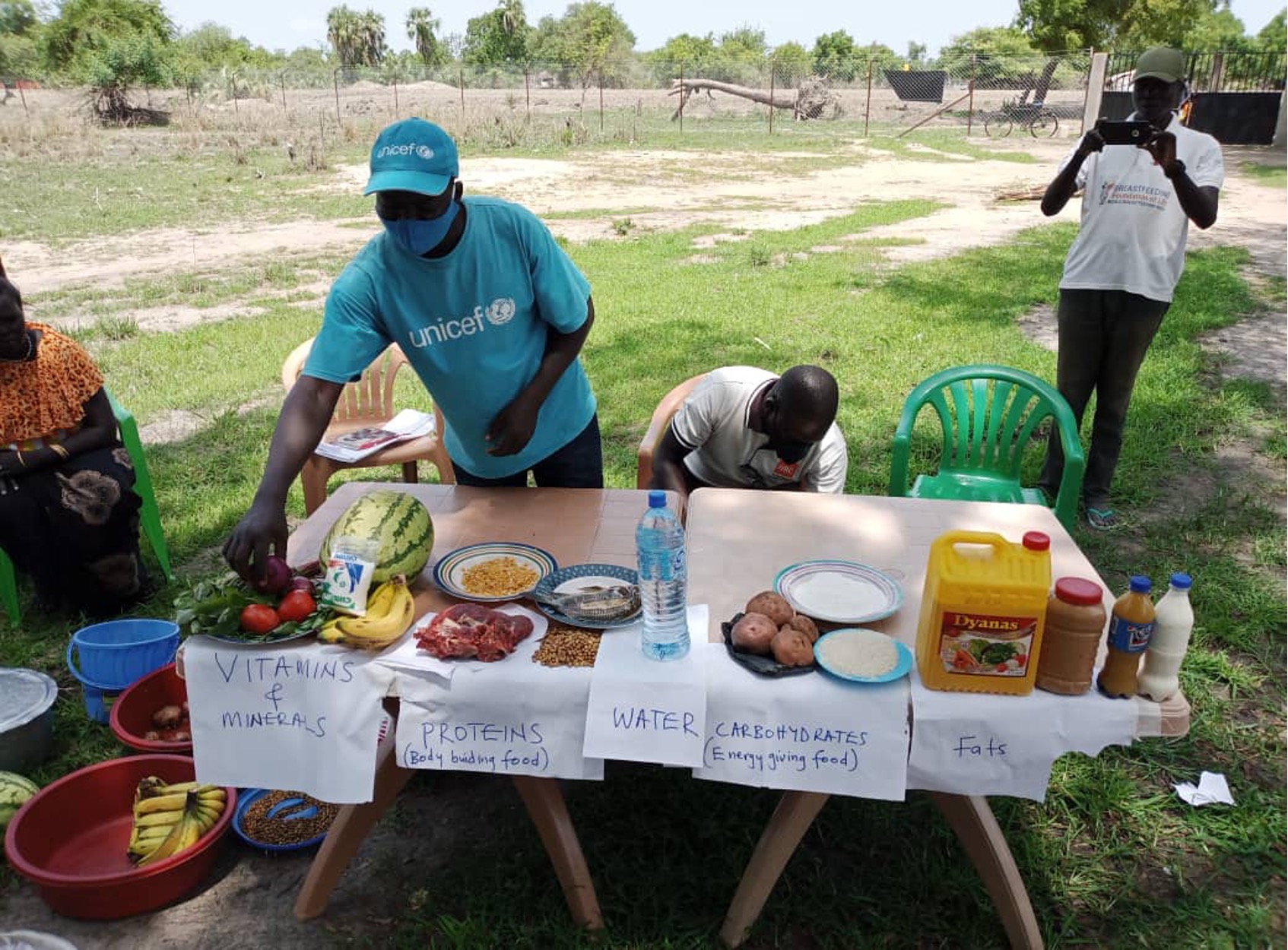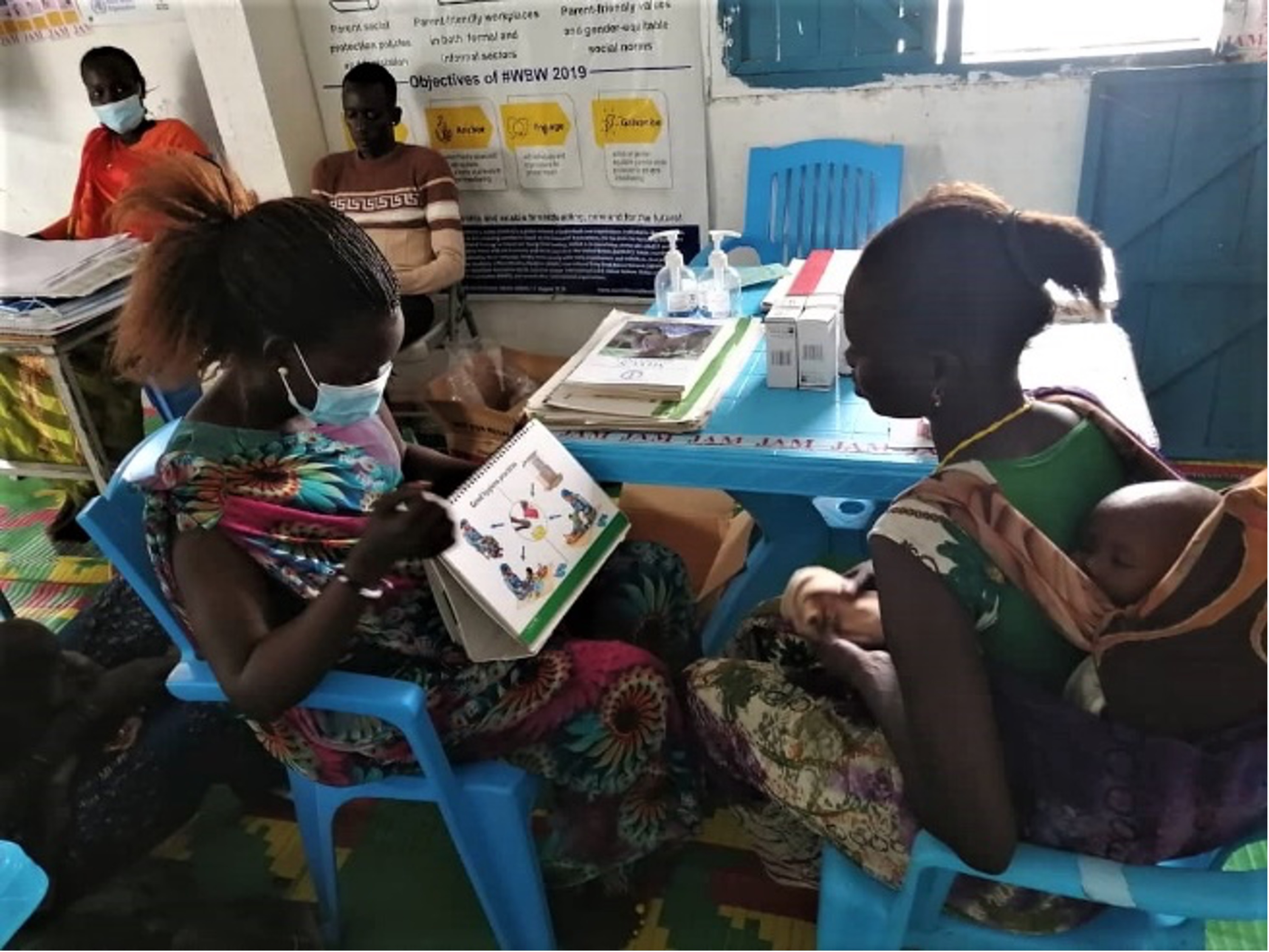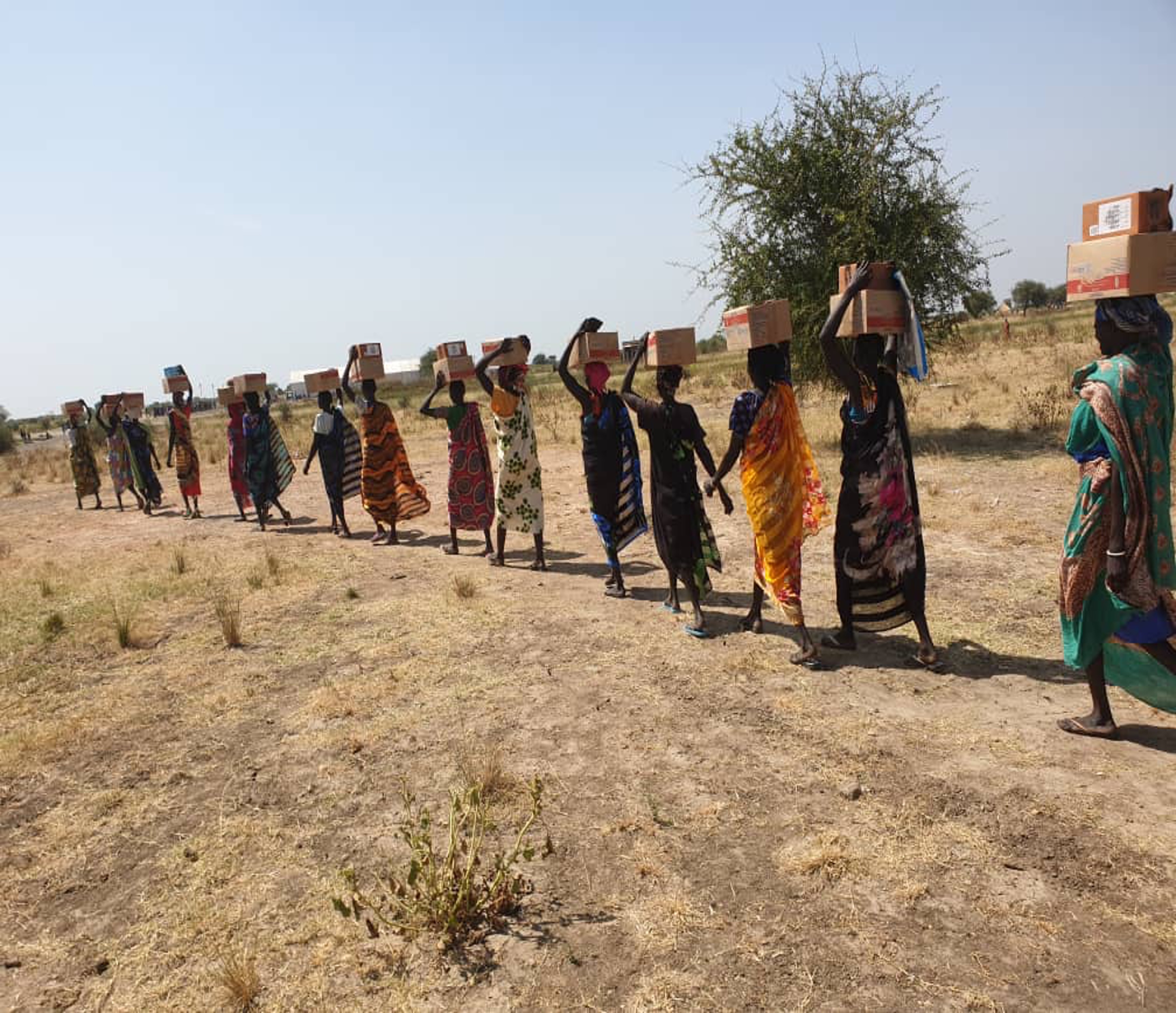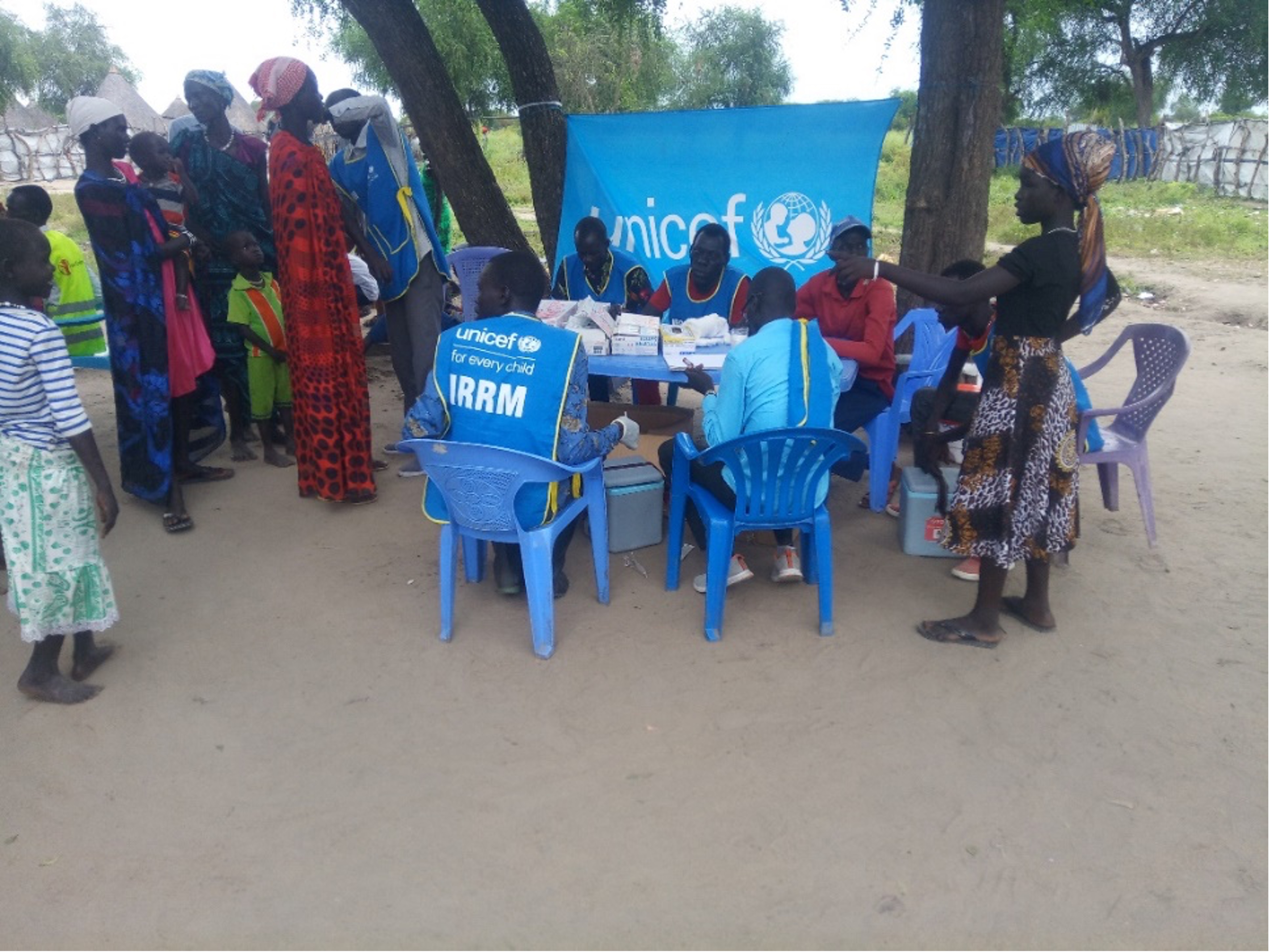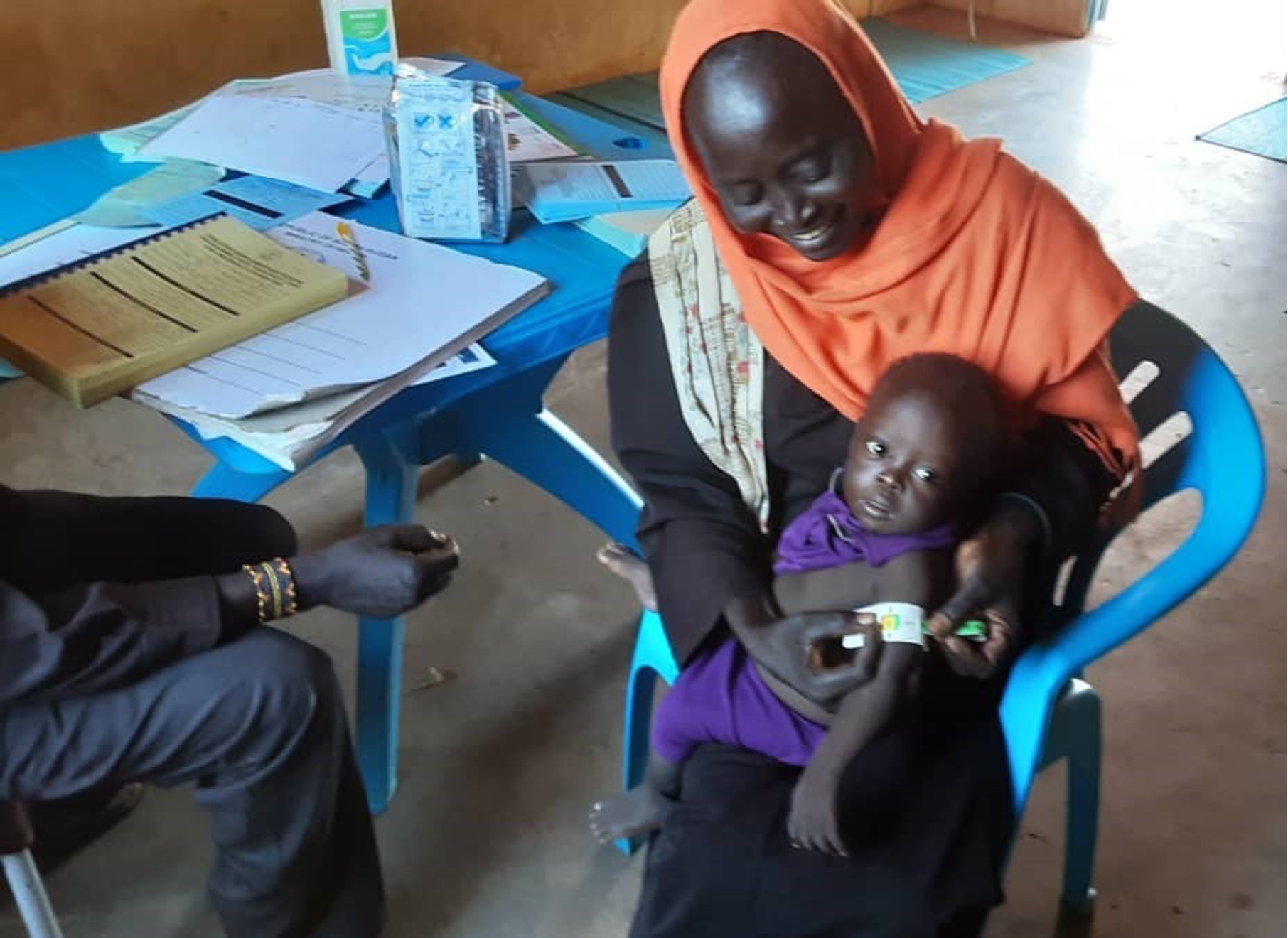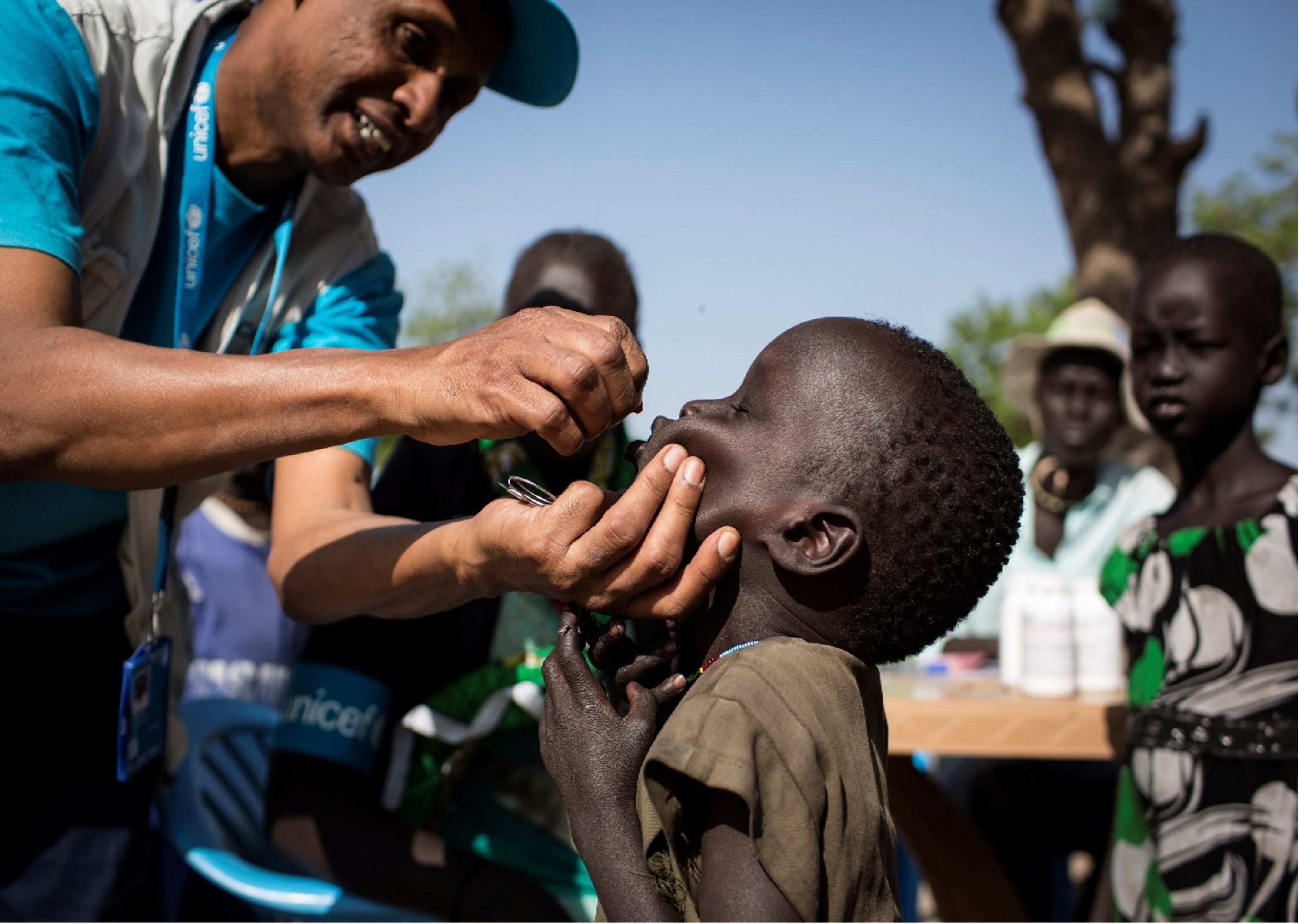 Scaling Up Care for Children with Severe Acute Malnutrition in South Sudan
Expanding quality health services in a complex emergency context
Scaling Up Care for Children with Severe Acute Malnutrition in South Sudan
Expanding quality health services in a complex emergency context

Challenges
Even before the upsurge of conflict in 2010, the prevalence of global acute malnutrition in Sudan was 22.7 percent, requiring an intensification of prevention and treatment of severe acute malnutrition (SAM) among affected populations. After the separation of South Sudan in 2011, the country faced a complex and protracted crisis, causing malnutrition to increase further. Political struggles and intercommunal conflicts have resulted in sustained poverty, with more than seven million people requiring humanitarian support and protection. Only a few civil society organizations continued to offer outpatient treatment, while many services collapsed or were suboptimal.
Between 2015 and 2018, the proportion of the population affected by food insecurity increased from 34 percent to around 60 percent. There was an urgent need to rapidly expand the reach of services for the early detection and treatment of children with SAM.
Towards a Solution
During the programme’s expansion between 2014 and 2018, the proportion of children with severe acute malnutrition being reached with life-saving treatment increased from 94,254 (40 percent) to 237,123 (77 percent). The number of outpatient treatment sites more than tripled, from 351 to 1,145 in 2019. The proportion of children who recover successfully from the programme has been consistently high, ranging from 78 percent in 2014 to 91 percent in 2019, meeting international programme performance standards. The proportion of children defaulting from treatment also declined steadily, from 17.4 percent in 2014 to 5.3 percent in 2019, while the rate of death has remained low at an average of 0.5 percent.
The CMAM concentrated on a community-based prevention approach, promoted continuum of care at nutrition sites, directly delivered nutrition interventions in hard to-reach areas, developed the capacities of partners and government, strengthened supply chain and pipeline management and enhanced needs analysis and coordination. Some innovative factors supporting quality scale-up include:
- guidelines and harmonization of treatment protocols endorsed by the government;
- a network of 40 partner organizations that jointly planned, implemented and monitored activities;
- a supervision pilot that assessed the quality of services several times a year, allowing supportive supervision and feedback so that timely corrective action could be taken; and
- Integrated Rapid Response Missions that screened children for acute malnutrition in hard-to-reach places so that they can be admitted for treatment.
Over time, the CMAM has been expanded as a part of comprehensive strategy integrated with nutrition, water, sanitation and hygiene (WASH), education, protection and early childhood development interventions. This included provision of child-friendly spaces, and early childhood development play and recreational materials, interventions to enhance food security and livelihoods, such as the distribution of seeds together with training to encourage dietary diversity, and systems-strengthening efforts used to reach mothers and children with preventative services, such as counselling to improve feeding practices and the delivery of essential micronutrients to young children.
South Sudan’s experience shows that it is possible to scale up a resilient CMAM programme based on global guidance during an ongoing humanitarian crisis in a country of the South. Some lessons learned from the implementation include: political support and engagement from the highest levels of government for programme ownership, policymaking and accountability; government endorsement of guidelines and easy-to-follow tools; a government-United Nations-NGO partnership focusing on convergent inter-sectoral community-based action; promotion of community awareness and engagement through community volunteers and mother-to-mother support groups; capacity building of skilled health workers through harmonized training packages; and a smooth supply pipeline for therapeutic foods with a tracking system and pre-position supplies.
South Sudan’s experience in locally addressing severe acute malnutrition offers valuable lesson for other countries, especially those with far less confounding challenges. Documenting the experience and sharing this with other countries in Africa and globally was a first step to increase access of other countries to this solution, so it can be replicated through South-South and Triangular Cooperation.
Contact Information
Countries involved
Supported by
Implementing Entities
Project Status
Project Period
Primary SDG
Secondary SDGs
Similar Solutions
| NAME OF SOLUTION | Countries | SDG | Project Status | |
|---|---|---|---|---|
Accelerator Labs Network Following collective intelligence methods to address emerging sustainability challenges and the growing demand for local solutions |
South Sudan | 08 - Decent Work and Economic Growth 13 - Climate Action | Ongoing | View Details |
Adaptation of 3PA to Urban and Displacement Settings Using South-South and Triangular Cooperation in World Food Programme Three-Pronged Approach capacity strengthening through cross-learning initiatives |
South Sudan | 02 - Zero Hunger | Completed | View Details |
Addressing Racial and Ethnicity-based Discrimination and Strengthening the Protection of Rural Afro-descendants UNFPA supports data disaggregation as a tool to fight racism and ethnic discrimination |
South Sudan | 01 - No Poverty 02 - Zero Hunger 03 - Good Health and Well-being 05 - Gender Equality 06 - Clean Water and Sanitation 11 - Sustainable Cities and Communities 16 - Peace and Justice Strong Institutions | Ongoing | View Details |
Adolescent Nutrition Programme to Address the Triple Burden of Malnutrition in Indonesia Nourishing today’s teens and tomorrow’s future in Indonesia |
South Sudan | 02 - Zero Hunger 05 - Gender Equality | Completed | View Details |
Advancing Public Health Policies to Address Overweight and Obesity in Chile and the Caribbean Community Leveraging experiences from Chilean labelling and marketing legislation to improve children’s health in the Caribbean |
South Sudan | 02 - Zero Hunger | Completed | View Details |
